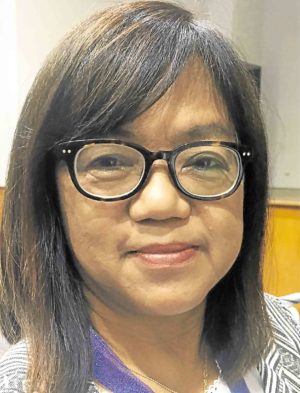
I improved the quality of my products and that’s how I earned my first million pesos Armanda Battad Entrepreneur
ANGELES CITY — A “tinapa” (smoked fish) maker who had become a millionaire, an overseas worker who now owned 30 cafes and a farmer who sidelines as an inventor.
They could be the faces of what an official said would be the future of Filipinos under the Duterte administration’s Philippine Development Plan (PDP).
At the launch of the PDP in Central Luzon, Severino Santos, the region’s National Economic and Development Authority (Neda) director, said the three case studies would become the norm under the PDP, the Duterte administration’s medium-term economic plan for 2017-2022.
Armanda Battad, Israel Romano and Jaime Esteban became the human face of the PDP presentation at the Holy Angel University (HAU) which Neda said sought to revive trust in public institutions and Filipinos in general by expanding and increasing access to economic opportunities.
Build, build, build
The PDP relies on a “build, build, build” policy to put up infrastructure key to progress.
Battad overcame poverty by making tinapa starting in 1984, acquiring an education through a government loan, availing herself of capital from the Bataan provincial government and building trust among workers and clients.
“In a trade fair, my product was taunted as ‘pagkain ng katulong (food for housemaids).’ I improved the quality of my products and that’s how I earned my first million pesos,” said Battad, a chemistry graduate of the Far Eastern University.
Romano sold “balut” (duck eggs), worked in factories and toiled as a cleaner in a cruise ship. He and his wife, Michelle, invested their savings in their venture, the Redbuck’s Coffee Shakes, at a mall in Bulacan province. The couple had since stopped working abroad.
Purpose in life
As to how they succeeded, Romano said: “Have a purpose in life and fear God.”
Cases of farmers or farm workers killed or injured when they were hit by vehicles while drying “palay” on national roads prompted Esteban to perfect a multipurpose rotary dryer in 1992.
“I hope the government doesn’t allow a flood of imported crops. Have pity on the farmers,” he said. He said locally developed machines were important for farmers to put value on their harvests.
HAU, according its president, Luis Maria Calingo, “seeks to be to Central Luzon what Stanford University is to Silicon Valley.”
Silicon Valley is home to many large high-tech companies, including 39 businesses in the Fortune 500.